Curriculum
CPPM is a two-year full-time postgraduate course, leading to the award of Master of Arts (MA) in Contemporary Physical Performance Making from the Estonian Academy of Music and Theatre.
Semester structure
The programme is structured across four semesters, each spanning a duration of four months. During this period, you will engage in a comprehensive curriculum designed to provide in-depth knowledge and skills pertinent to the course. Each semester is carefully planned to ensure a progressive and cohesive learning experience, allowing you to build upon your knowledge incrementally. This structured approach ensures that each four-month semester contributes significantly to the course’s overall learning aims and outcomes.

Curriculum structure
The syllabus is segmented into six distinct modules. For a more detailed understanding of each module, including the specific learning objectives and anticipated outcomes, you are encouraged to click on the respective module titles listed below. This will provide you with a comprehensive overview of the content covered in each module, alongside the skills and knowledge you are expected to acquire upon completion. This detailed breakdown is designed to give you a clearer insight into the structure and depth of the curriculum, ensuring you are well-informed about the educational journey you are about to embark upon.
-
Core Studies and Practice (45 ECTS)
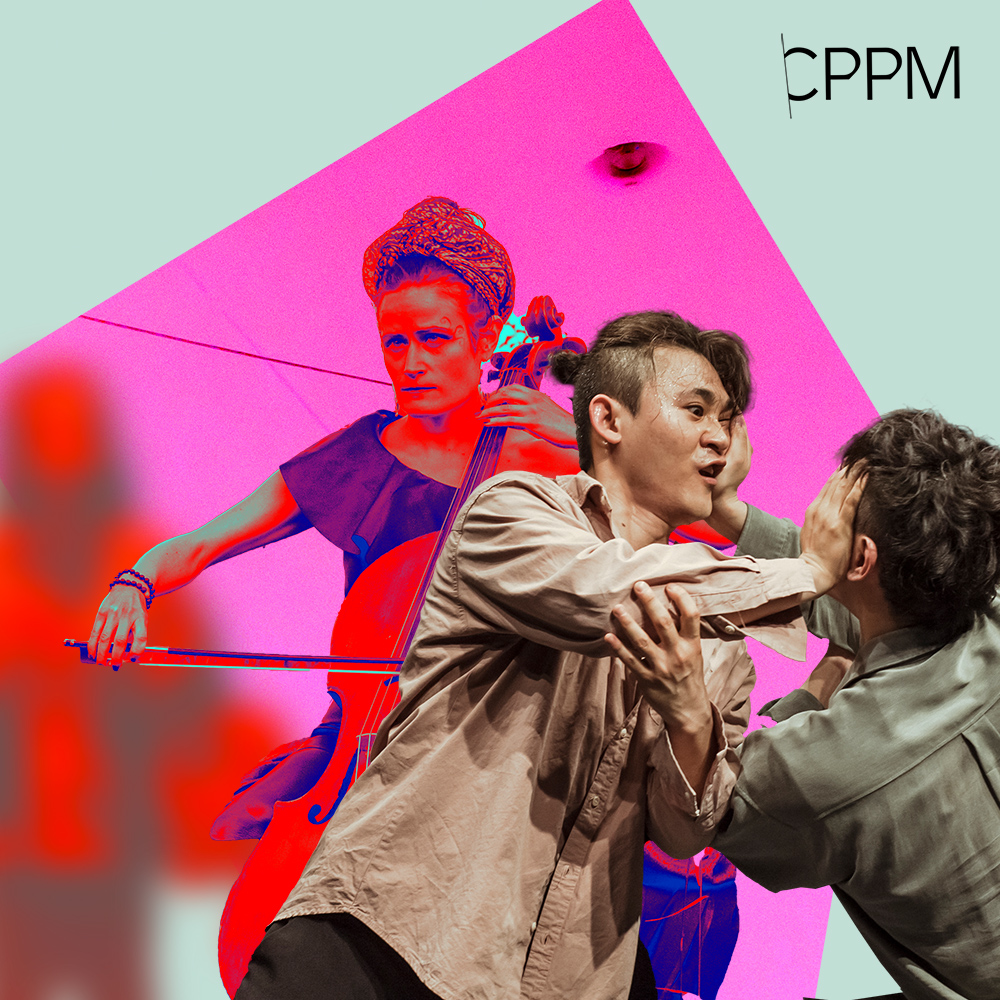
Core Studies and Practice (45 ECTS)
In this module, you will spend the majority of your time in the studio: training, devising, rehearsing, and performing with internationally acclaimed guest artists from across the globe. You will work closely as a company with these leading experts in their creative methods and rehearsal processes, putting real-world experience at the very centre of your learning. It is a practical apprenticeship in the studio, face-to-face with masters from every aspect of performance making, allowing you to develop your craft by collaborating, investigating, experimenting, and performing. As such, you will be expected to show the same level of commitment, creativity, and professionalism that these artists usually demand in their rehearsal room.
You will reflect critically on your experiences and place your artistic work in the broader theoretical, historical and creative context through reflective journals, small group seminars, and individual tutorials. In this way, you can observe, document, and guide your development as an artist during this very demanding two-year course.
This module is supported by daily training sessions in which you will be introduced to various approaches in maintaining and further developing your physical and vocal skills. These include, but are not limited to: Alexander technique, Vocal Performance, Singing, Vocal Improvisation, Capoeira, Qi-Gong, Contact Improvisation, Contemporary Dance, Pilates, TRE.
Learning Aims
The module aims to:
- offer the opportunity to investigate various training and creative methods, strategies and interdisciplinary perspectives in contemporary performance;
- promote a critical attitude towards modes of making in contemporary performance practice to evaluate the interrelation between training methods and creative processes;
- give students practical hands-on experience and competency to use various training and creative methods to develop their artistic practice.
Learning Outcomes
Students who have passed the module will be able to:
- critique various creative and training methods and locate them within the field of contemporary performance practice;
- contrast and compare diverse training methods and their relationship with creative practice;
- appraise and critique the stages of evolution as performance artists;
- critically analyse and direct their personal development as artists;
- command efficient methods of independent learning, self-reflection and evaluation;
- adopt and adapt the knowledge gained in the context of their creative practice.
The following courses in this module are compulsory for CPPM students:
Course Code | Title ECTS
CPM001 Contemporary Performance Practices I
15
CPM002 Contemporary Performance Practices II
15
CPM003 Contemporary Performance Practices III
15
-
Creative Projects (21 ECTS)
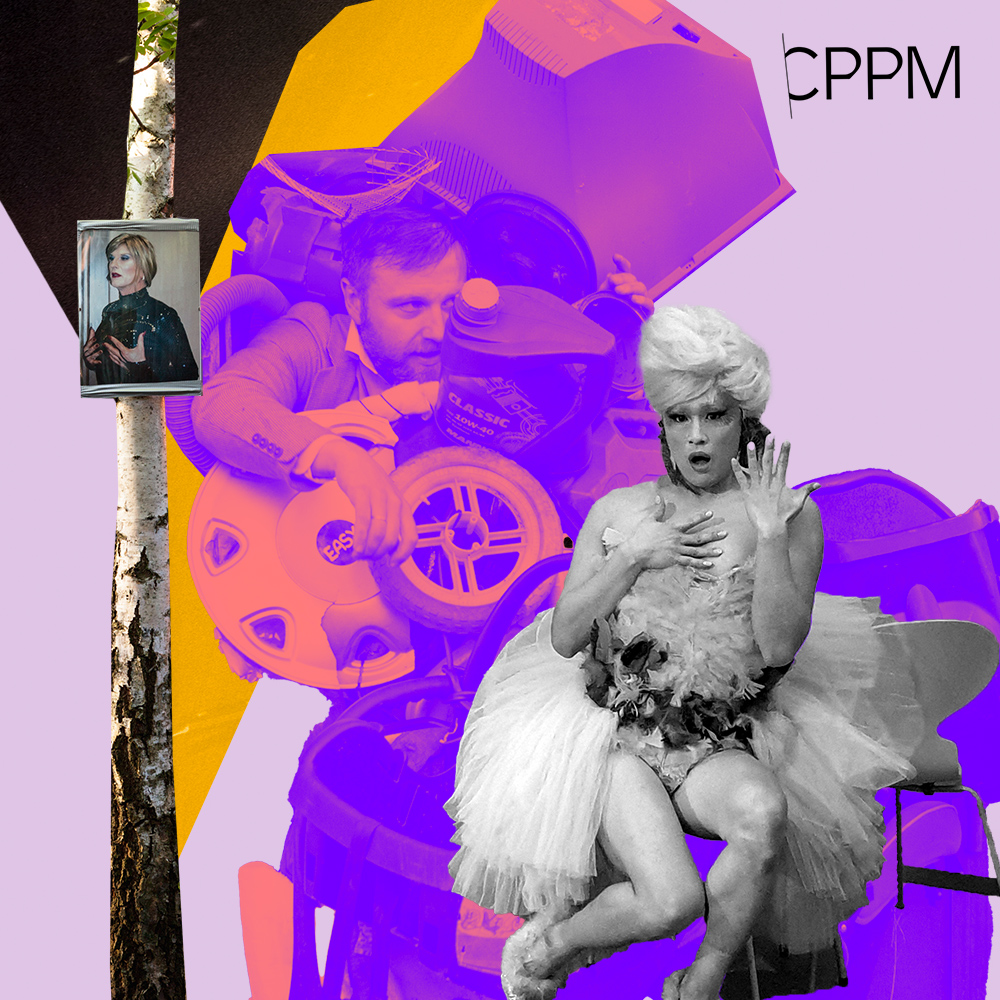
Creative Projects (21 ECTS)
Your creative stamina will be challenged at every step of your studies. Your experimentations and discoveries will not be confined to the academy’s walls, and you will constantly be creating and testing your work in front of an audience through open classes, internal sharings and various creative projects presented to the public. This gives you the opportunity to share your works-in-progress in front of an audience and receive invaluable feedback.
Each term culminates in a creative project with a different focus – allowing you to implement and consolidate the tools and interests stirred through your work with the guest artists. These projects encourage you, as an artist, to experiment boldly and uncompromisingly, while questioning artistic norms and your own preconceptions at every step.
Term one will have you create and perform several solo projects – Drag, Autobiographical, and Artistic Response to existing material.
Term two is focussed on the strategies and tools for working as an ensemble, culminating in a devised ensemble piece in collaboration with a guest artist.
Term three will explore the possibilities of what is “beyond performance” – leaving the traditional theatre venue and looking at transdisciplinary opportunities.
All material that you create throughout the course can be added to your artistic portfolio – and used freely for applications and performances following graduation.
Learning Aims
The aim of the module is to:
- introduce students to various approaches to artistic practice;
- provide practical hands-on experience and competency to use various training and creative methods in the development of their unique artistic practice;
- experience in the design, management and production of artistic projects in inter- and transdisciplinary contexts.
Learning Outcomes
Students who have passed the module will be able to:
- establish, evaluate and research sources for performance making (e.g. visual, textual, sonic, audio);
- experiment with diverse creative strategies to formulate a strong foundation for a process of artistic research;
- appraise their work and its impact on the audience and locate it within the contemporary field of performance;
- independently conduct artistic projects, showing initiative, sense of responsibility and managing and teamwork skills as well as high professional level of creativity from the planning stage to production;
- structure, navigate, document, and critically analyse their own creative process.
The following courses in this module are compulsory for CPPM students:
Course Code | Title ECTS
CPM010 Creative Project: Solo Performance
7
CPM011 Creative Project: Devising Performance
7
CPM012 Creative Project: Beyond Performance
7
-
Specialist Studies (24 ECTS)
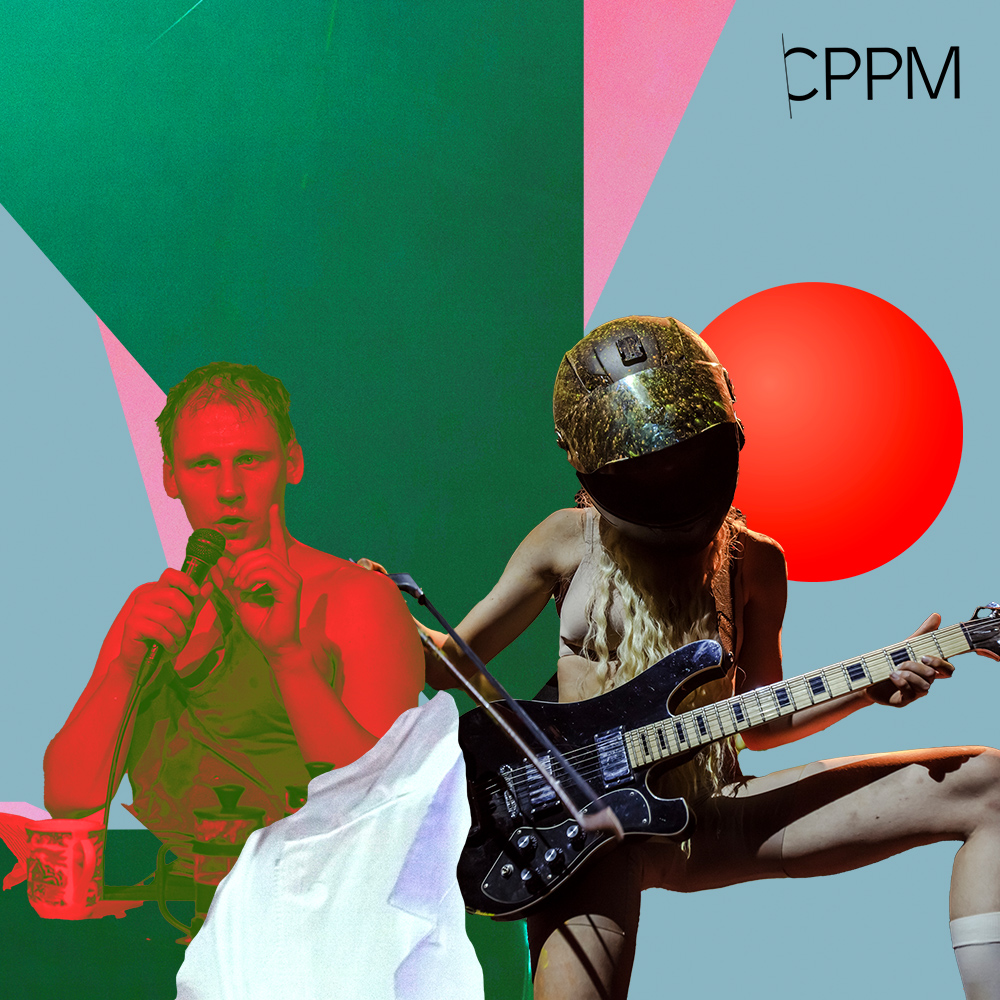
Specialist Studies (24 ECTS)
Your practical immersion in the studio will be supported by historical, contextual, and theoretical studies. You will be investigating the historical roots of contemporary performance and their relevance to current artistic practice, with special attention given to trans- and inter-disciplinarity. Simultaneously, you will research current trends in global arts practice, including key personalities, companies, festivals and trends with emphasis on the unique aesthetic, artistic, ideological and socio-political contexts they operate within.
In this module, you will be equipped with the tools and strategies for independently growing and managing your career as an artist, including practical project management, sustainability, and applications for funding and festivals. These tools and strategies will assist you to clearly define your artistic vision and ways for its implementation within your chosen field of cultural production.
You will also have the opportunity to select from a range of electives that encompass numerous creative skill sets, broadening and strengthening your toolkit of abilities as an independent contemporary artist.
Learning Aims
The module aims to:
- offer students further opportunity to contextualise their practice and that of others within the field of contemporary performance;
- offer an opportunity to understand the intertwining of critical and performance practices and apply this to their artistic development;
- raise awareness and ability to analyse personal learning processes and creativity;
- introduce the models, theories and practices that form a basis of entrepreneurial thinking in the field of performing arts;
- offer an opportunity to further develop student’s practical, creative and hands-on technical skills necessary in the process of performance making.
Learning Outcomes
Students who have passed the module:
- have a systematic overview and extensive knowledge of the history, terms, concepts and theories in the field of contemporary performance;
- demonstrate the ability to engage critically with historical research to underpin current creative practice;
- are familiar with and respond critically to contemporary developments and debates within the specific field of contemporary performance, including students’ own work;
- are able to assess their need for further education and specialised professional development, and command efficient methods of independent learning;
- are able to recognise and create inter and trans-disciplinary links between various disciplines and apply these in their creative activity.
The following courses in this module are compulsory for CPPM students:
Course Code | Title ECTS
CPM004 Tracing the Trails of Contemporary Performance
5
CPM005 Mapping the Field of Contemporary Performance
5
CPM009 Artistic Self-Curatorship and Management
5
Elective courses
In addition, students are required to select at least 9 ECTS from a list of elective courses that cover a variety of practical skills for performance making, including: dramaturgy and composition; creative writing for stage and screen; lighting, sound, and set design; new media and technology in performance. This list of elective courses will be confirmed at the beginning of each academic year.
-
Research Skills (15 ECTS)
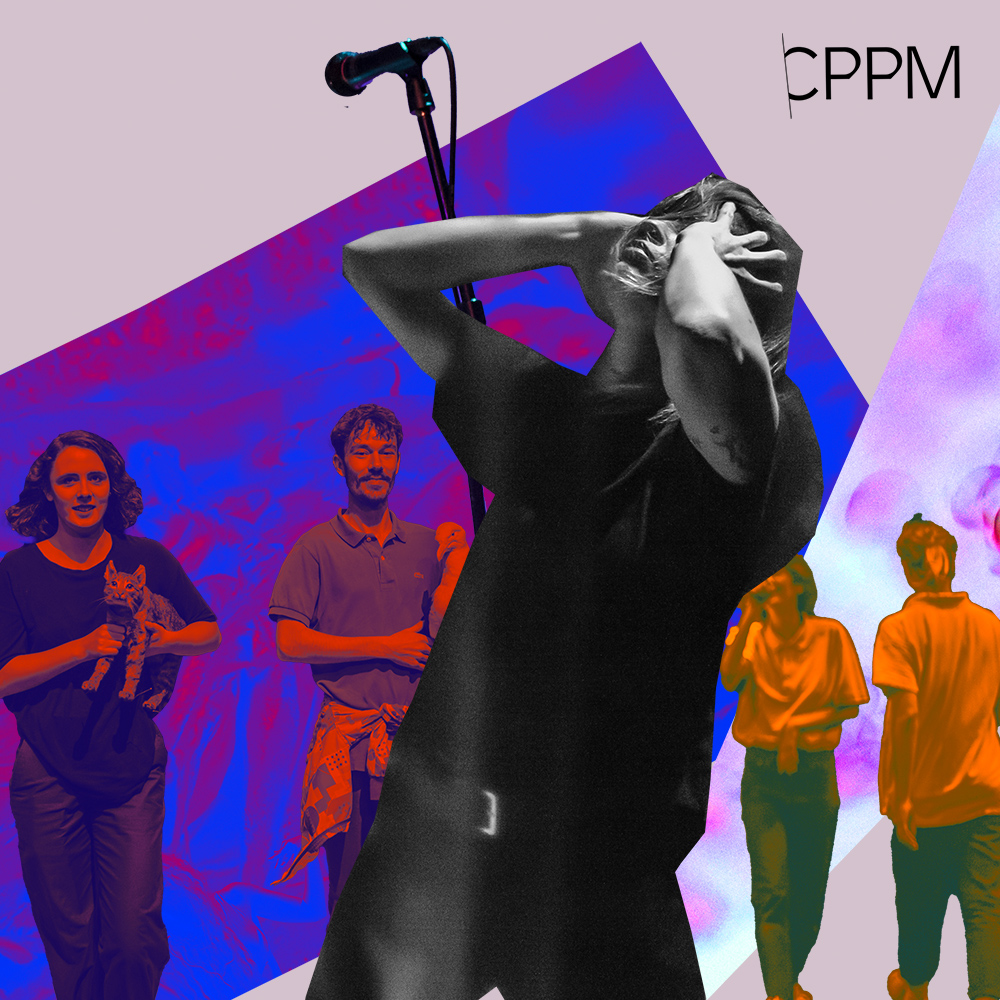
Research Skills (15 ECTS)
You will explore a variety of theatre and performance research methods such as theatre semiotics, theatre phenomenology, theatre anthropology, theatre sociology, gender studies, and more. You will acquire advanced skills in Practice as Research in order to contextualise, design, document, and present your creative work in the framework of the wider artistic field. The module culminates in a written research paper on a topic of your choosing.
Learning Aims
The aim of the module is to:
- introduce students to current trends and methods for the study of contemporary performance;
- develop practical and conceptual skills in undertaking academic and artistic research;
- develop skills in the analysis, interrogation and (re)evaluation of relevant theories of practice, working practices, methodologies and bodies of knowledge;
- offer the opportunity to implement appropriate research strategies, through the production of coherent research questions, analytical plans, documentation and presentation;
- develop ability to work flexibly and imaginatively to communicate their research effectively to wider artistic communities;
- develop advanced research skills and strategies necessary in preparation for and execution of a Master’s Degree Project.
Learning outcomes
Students who have passed the module:
- demonstrate knowledge of key issues in current practice and address them throughout the research in both practice and critical reflection;
- respond critically to contemporary developments and debates within the specific field of contemporary performance, including students’ own work;
- formulate appropriate research questions and determine appropriate methodologies and resources for exploring these questions;
- carry out independent research and develop lines of inquiry, drawing on a range of sources and applying conceptual/theoretical frameworks in an advanced way;
- communicate complex critical-theoretical thinking fluently and present scholarly writing in an appropriate format, using the correct terminology, bibliography, and references.
The following courses in this module are compulsory for CPPM students:
Course Code | Title ECTS
CPM006 Theatre and Performance Research Methods
5
CPM008 Practice as Research: Design, Documentation, Presentation
5
CPM080 Research Paper in Contemporary Performance
5
-
Master's Degree Project (15 ECTS)
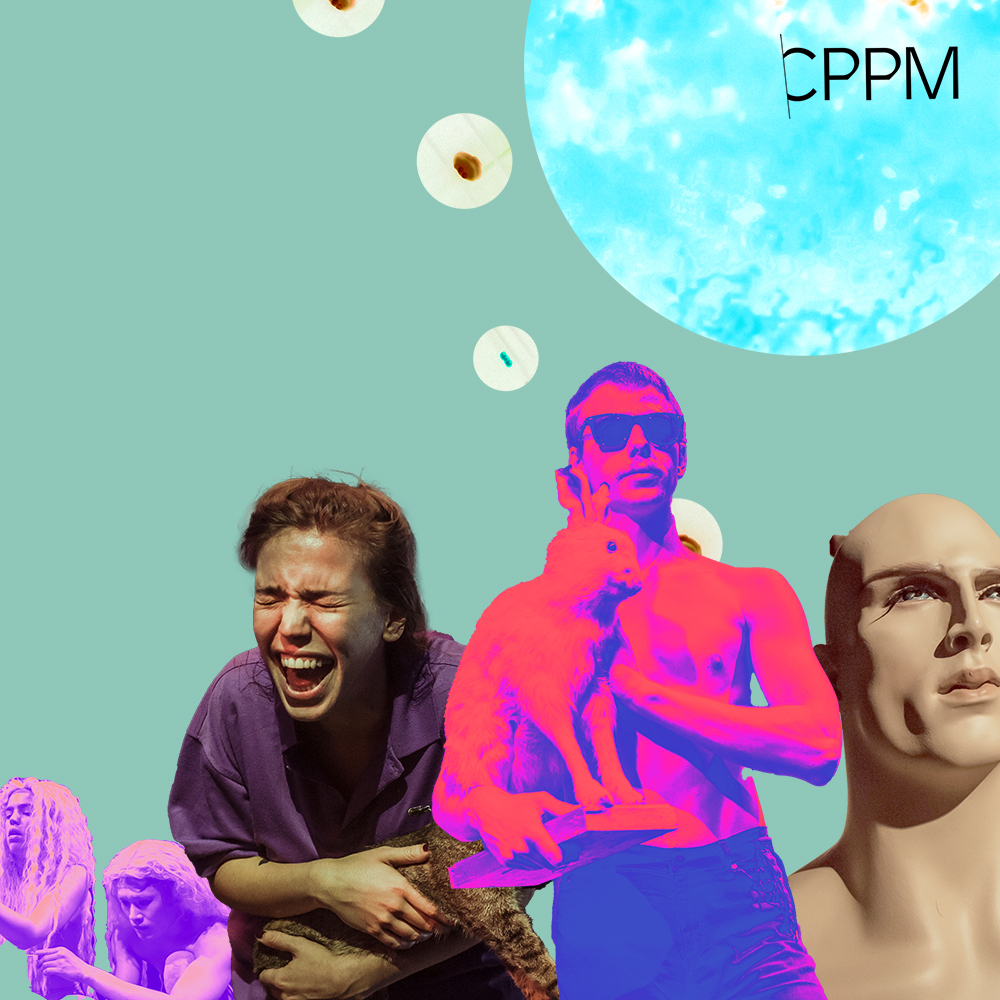
Master’s Degree Project (15 ETCS)
Term four is entirely dedicated to your final project: the work that you will create as a manifestation of your individual unique artistic vision. This is the capstone project of the course and consists of a substantial artistic research process leading to a public performance. You will start preparing for this at the beginning of the second year and you will be given all-rounded support and mentorship to facilitate this process.
Your final project will be presented as part of the CPPM Manifestal. This bespoke performance festival is created with the sole purpose of providing a platform for CPPM students to present their original works to a wide, international audience. Students have total creative control over their projects, collaborators, and venues, and draw attention from a number of international festivals and companies. Read more about CPPM Manifestal here.
Learning Aims
The aim of the project is to:
- provide an opportunity for a substantial artistic research process that reflects the depth of inquiry bringing together the strands of knowledge gained throughout the course;
- develop the ability to operate autonomously supported by supervisors, mentors and artistic collaborators;
- provide an opportunity to engage students with practice in a variety of modes: writing, directing, performance, and electronic forms of dissemination to address the multi-modal nature of performance making.
Learning Outcomes
Students who have passed the module will be able to:
- demonstrate knowledge of key issues in current practice and address them throughout the research in both practice and critical reflection;
- formulate a critical framework to enable reflection on their methods of practice;
- run an artistic project from the initial idea and research question to the rehearsal process and manage it as a public event;
- provide evidence of their role as artists/researchers at work, demonstrating rigorous attention to stages of experimentation in the process.
The following course in this module is compulsory for CPPM students:
Course Code | Title ECTS
CPM013 Master’s Degree Project
15
-
Free Choice Courses
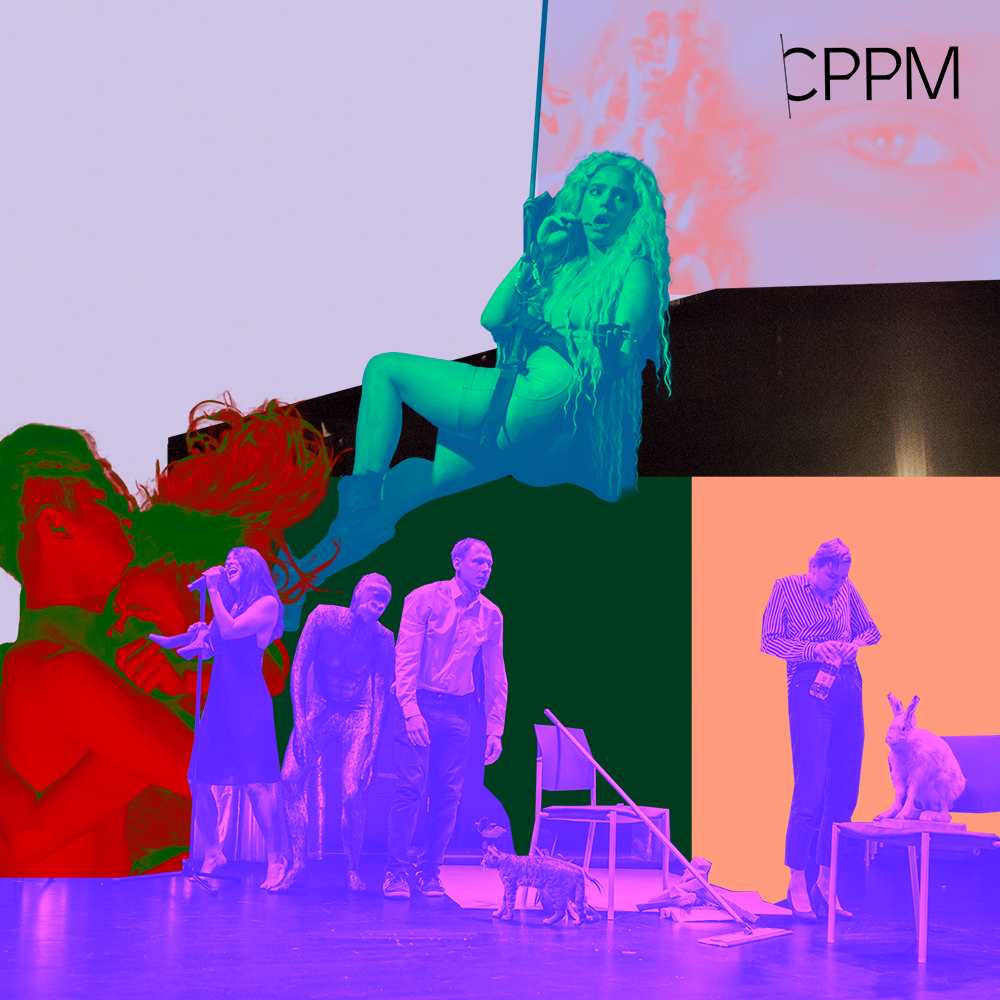
Free Choice Courses
If desired, you will have the opportunity to select from several various courses from EAMT or any other public university in Estonia.
Learning Aims
This module aims to support the objectives of the curriculum by providing students with the freedom to plan their studies according to their individual development needs, academic, intellectual, artistic and professional interests, and future career. This module allows students to gain additional knowledge in more narrow disciplines or subjects related to their field of study.
Learning Outcomes
Students will have a deeper understanding of and knowledge in the field of their chosen speciality.

Learning and assessment
Overall Learning Outcomes
Students who have completed the CPPM:
- have a systematic overview and extensive knowledge of the history, terms, concepts and theories of performing arts as well research and creative methods applied in the field;
- have an understanding of the contemporary context in which their own practice is situated;
- know the applications of contemporary performing arts, as well as theoretical and creative developments and topical issues in them;
- are able to recognise and create links between various disciplines and apply these in their creative activity;
- are able to independently initiate and conduct international cooperation projects, showing initiative, sense of responsibility, professional managing and teamwork skills, as well as high level of creativity;
- are able to critically analyse their creative process and their personal development as artists;
- are able to assess their need for further education and specialised professional development, and command efficient methods of independent learning;
- are ready for working in areas that require specialised professional skills;
- are specialists in their field, initiating innovative projects and creating new directions.





